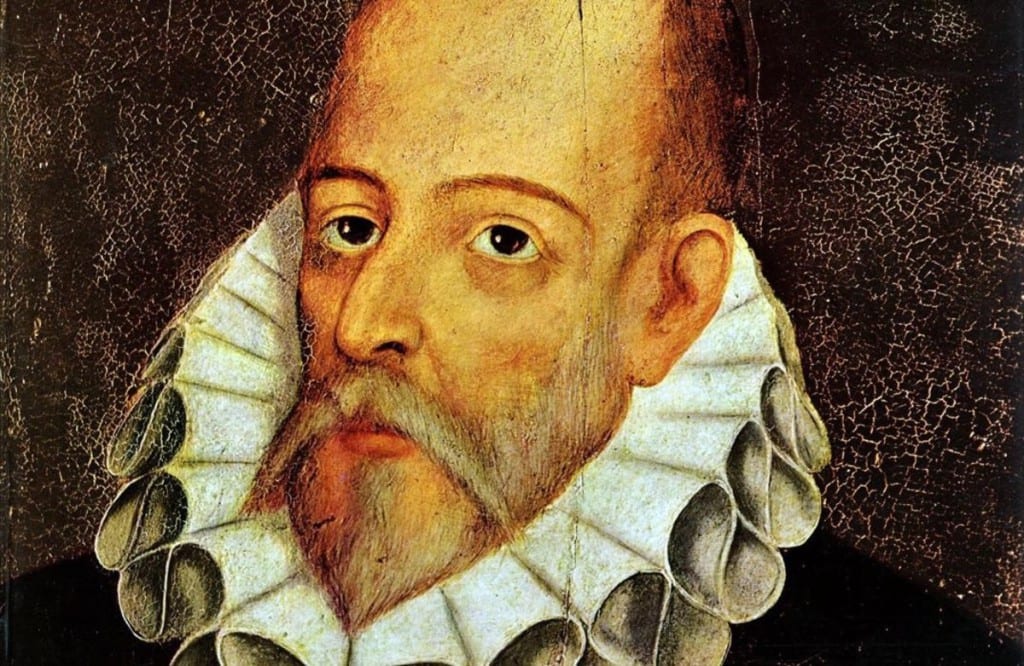Cervantes (Miguel de Cervantes Cortinas) (1547-1616)
The Spaniard, Miguel Cervantes, a contemporary of Shakespeare, actually dying the day before the Bard, is without doubt the most important writer in the history of the modern novel and, indeed, one of the most important in the history of literature. His novel, Don Quixote, was written at the beginning of the form’s development but has not been surpassed, both in its influence and in its qualities, by subsequent novels. Moreover, it is a bible for postmodern writers in that it displays every article of the features used by writers of postmodern fiction.
Cervantes was a prolific writer with numerous novels and plays to his name, but Don Quixote overshadows them all and his name is associated almost exclusively with that one novel. It is the first modern romance or novel, and it has served as the model for the comic novel. Humorous scenes and episodes, mostly burlesque, abound and it’s basically satirical. It is one of the Encyclopedia Britannica’s Great Books of the Western World. Dostoyevsky called it ‘the ultimate and most sublime work of human thinking’.

Portrait of Miguel de Cervantes
The story is about the adventures of a Spanish nobleman, Alonso Quixano, who is mad. He has read countless chivalric romances and comes to imagine himself as a medieval knight who has to undo the wrongs of the world and restore justice to it. He assumes the name Don Quixote de la Mancha and recruits a neighbouring farmer, Sancho Panza, as his squire. As the story progresses Sancho Panza becomes a foil to Don Quixote’s madness with his down to earth response to the knight’s fantasies. Don Quixote misinterprets every situation he finds himself in, relating it to his knightly story, and it is extremely funny.
The novel’s incalculable influence on subsequent writers lies in the literary techniques Cervantes used, which have intrigued many of the most famous of them, and which were used in some of the greatest novels in Western culture. His techniques have been labelled by centuries of critics and so we have words like realism, inter-textuality, meta-theatre, etc.
Almost all fiction writers today are influenced by Cervantes but some of the more notable novels heavily influenced by Don Quixote are Mark Twain’s Adventures of Huckleberry Finn, Lawrence Sterne’s Tristram Shandy, Alexandre’ Dumas’ The Three Musketeers, Edmond Rostand’s Cyrano de Bergerac and Jean-Jacques Rousseau’s La Nouvelle Heloise. The word Quixotic has been coined, meaning, Possessing or acting with the desire to do noble and romantic deeds, without thought of realism and practicality; exceedingly idealistic – impulsive – deluded.
Read biographies of all of the 30 greatest writers ever >>



